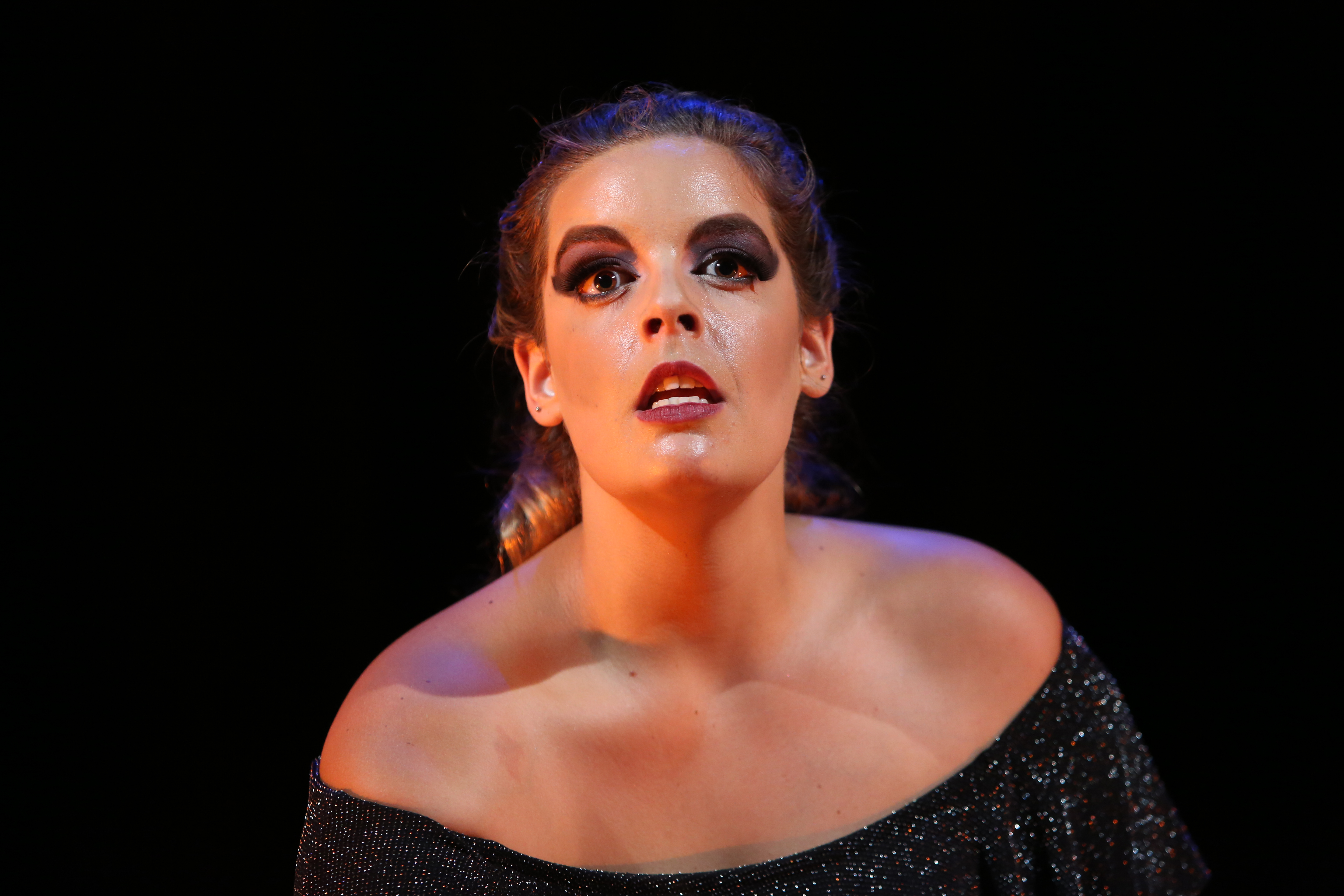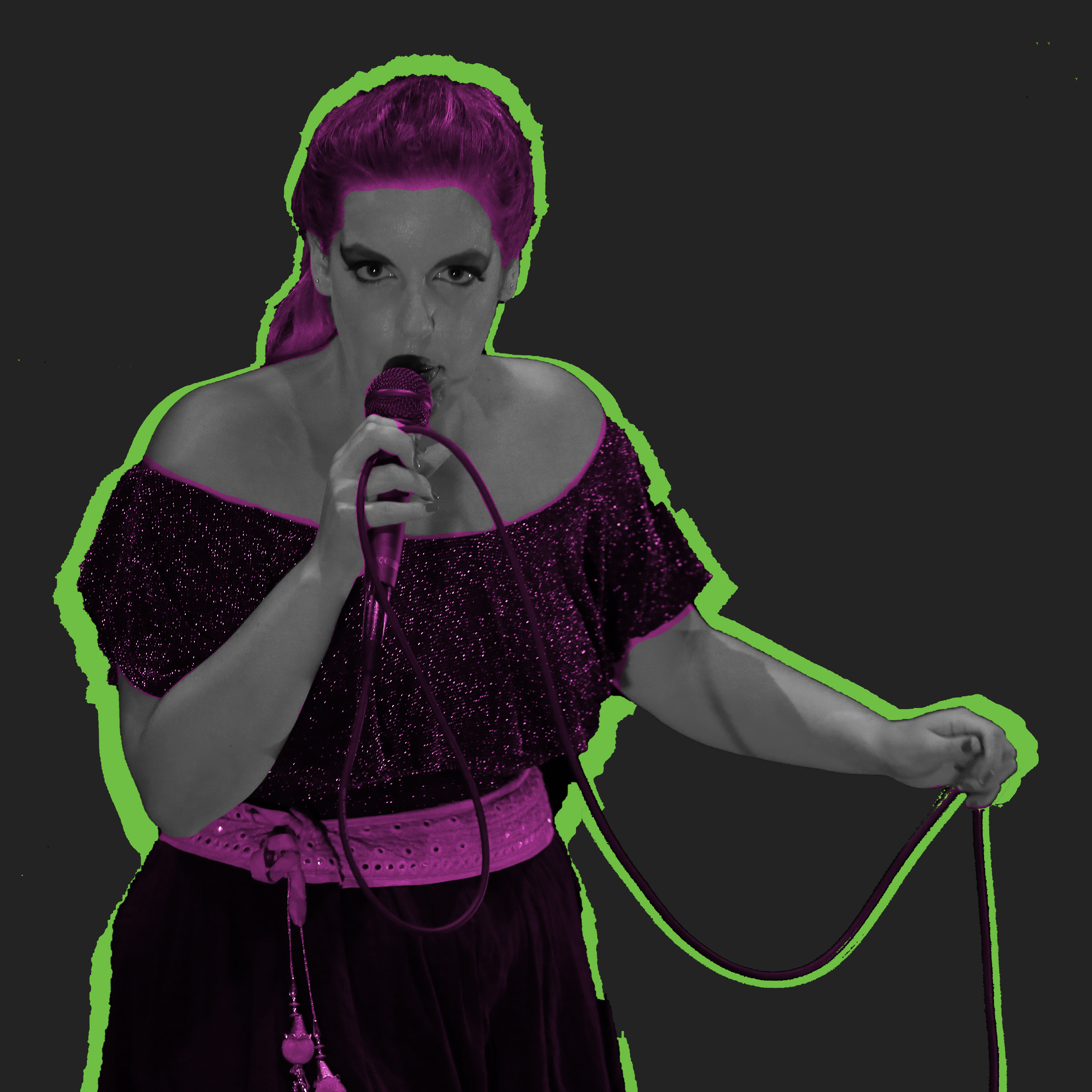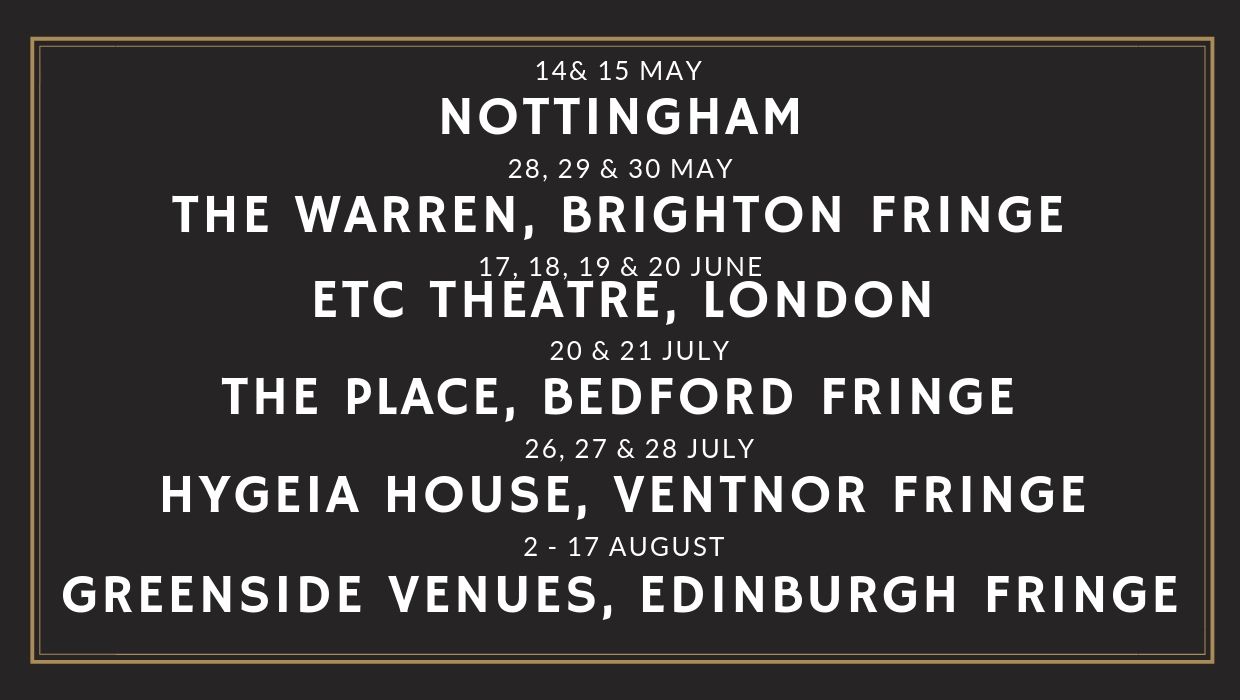“Inês and myself got really inspired by the audience responses to “Tieta” our last play and decided to re-work the idea, and together with Almiro Andrade, we created something that used all the elements that the audiences had enjoyed. We embraced this feedback and The Trial evolved into a more interactive, playful piece with more music numbers.
Questioning current spiritual and moral bankruptcy
The Trial is an attempt to bring to light and provoke discussion on gender identity and the current attitude of the Brazilian government towards LGBTQ+ rights, and indeed human rights. I was very upset when I read that our beautiful country of Brazil, which, in my opinion, should be projecting an image of progress, joy and equality, currently holds the world record for hate-based LGBTQ+ murders. So as a queer artist and member of the Brazilian diaspora in the UK, it is important to question our spiritual and moral bankruptcy, but to do it in a way that is both biting and entertaining.
Storytelling techniques inspired by Japanese Rakugo form
The Trial is very much a post-dramatic interactive show that uses rakugo inspired storytelling to transport the audience to rural Brazil, where our play takes place.

‘The Trial’ with Inês Sampaio, photo by Graham Reading
Rakugo is a Japanese theatre form of storytelling where performers incorporates creative gestures with the use of two props, a fan and a hand cloth. As a storyteller, the rakugo performer helps create the setting for the audience to better use their imagination and enjoy the story. So all we have on the stage is a fan, a microphone, a pedal loop and 3 musical instruments: a djembe, a tambourine and an accordion and Inês, the performer, to delight us all as she conjures up an amazing atmosphere through words, sounds and songs.
Why some people still struggle to see that LGBTQ+ rights as human rights?
We hope that the audience will question, as much as we did, notions of true self, how far have we come to shed out prejudices on gender and sexuality? Why some people still struggle to see that LGBTQ+ rights as human rights? In this Brazilian mesh of poverty versus wealth & greed, social exclusion versus fight for equality, we hope that The Trial gets audiences to think about the current social political issues that our community is currently dealing with in many other countries taken over by the extreme right, and get to act in whatever way to make a different, even signing a petition for equal rights, to quote Harvey Milk “we will not win our rights by staying quietly in our closets”.

The Trial, with Inês Sampaio, photo by Graham Reading artwork by Sara Truckel
Inspiration for this incredible journey initially came from Jorge Amado’s novel Tieta do Agreste. However, as we progressed constructing the work, re-shaping, re-thinking our message, it all changed. I was heavily inspired by the personal stories of friends in the UK and the northeast of Brazil as well as recent newspapers reports on LGBTQ+ hate crime, so you could say that this is based on real life.
The Trial of D Tieta Vs Zé Esteves and the town of Agreste is in itself called by Tieta. Tieta, a young person who was shunned from their small town in the northeast of Brazil for being queer only to return as a transwoman asking for the townsfolk to find her justice. The audience is invited by the storyteller to play Jury to this rather unusual Trial.
This is the Trial and you are the Jury
As The Trial progresses, the Jury (audience) , examine evidences and learn the facts, circumstances and witness a liberal cross-examination of the persecution. The audience (jury) cannot be bystanders though, they are fully responsible for the final verdict, in fact we cannot do this show without them, so here’s an invitation: Click here and Come play Jury!

